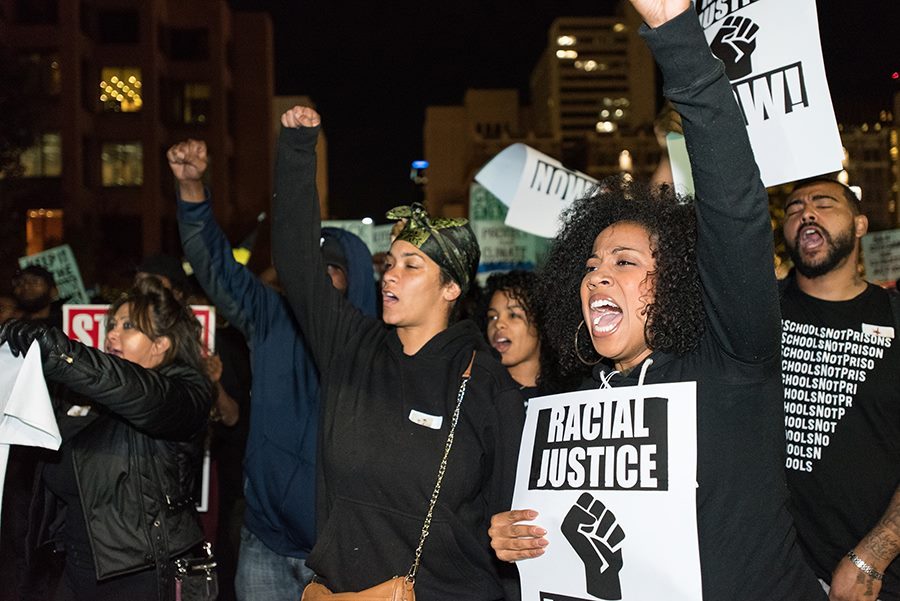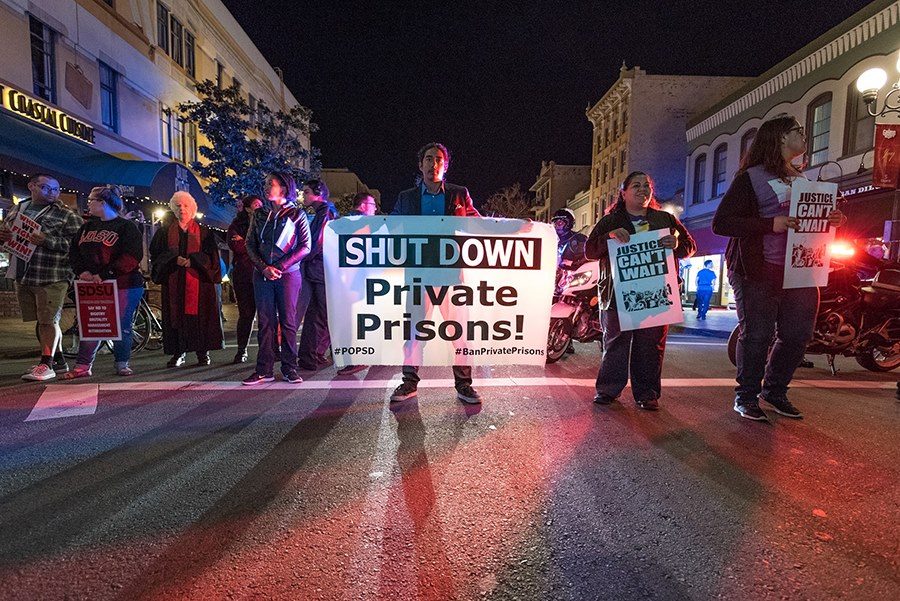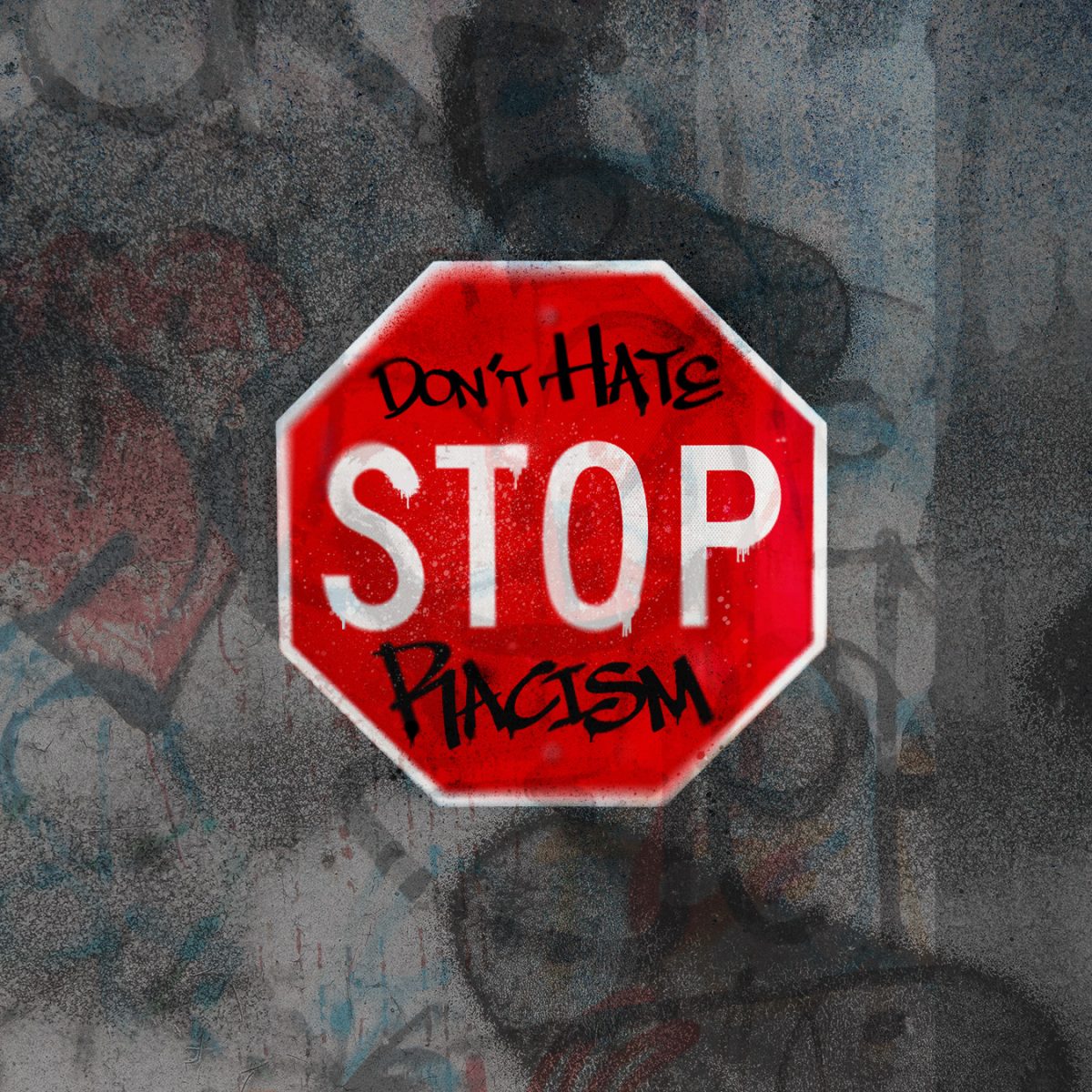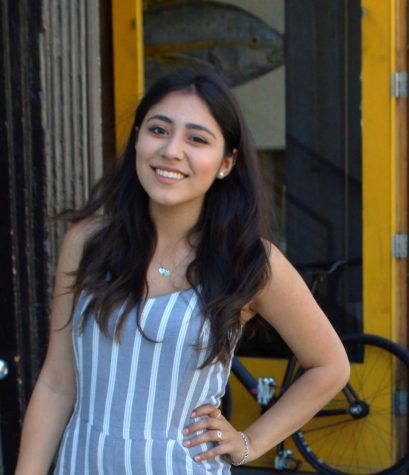Hundreds of people marched in downtown San Diego as they held signs to fight against police brutality, deportations of immigrants and the Dakota Access Pipeline from 5 p.m. to 7 p.m. on Nov. 29 as part of the “Justice Can’t Wait” rally.
A pre-rally was held at San Diego State, where community members shared their sentiments about the post-election era.
After the rally, a bus was provided at SDSU to transport students downtown.
Protesters also requested criminal justice reform, environmental and climate justice, housing and a $15 living wage.
Sociology senior Lauren Hopkins said she heard of the rally in her sociology classes and said she joined to show SDSU stands with the issues and that they are not backing down.
“I think it’s amazing everyone can come together,” Hopkins said. “Even though we’re here on different issues, we’re all here fighting for the right to have our voices heard.”
Before the 1.5-mile march began at the Federal Building to the San Diego City College, people from many organizations spoke to the crowd, including Richard Olango, father of Alfred Olango.
Alfred Olango was the 38-year-old man who was shot and killed by El Cajon police on Sept. 27.
Richard Olango said he wanted a federal investigation into the killing of his son and urged people to sign his petition to do so.
“Alfred will not come back,” he said. “He will not call me daddy again, but we are going to fight for Alfred.”
People marched through the streets of Downtown San Diego chanting Alfred Olango’s name and calling for the prosecution of Officer Richard Gonsalves.
“It makes me very emotional to see so many people chanting his name, but it also gives me so much strength,” Olango said. “It makes me see that people are behind me as I fight this injustice, and if we continue fighting the way we are, we will win.”
There was a die-in where several men and women lied on the ground to represent the people who had been killed by police.
San Diego citizen Marie Little said she attended the rally because she is from El Cajon and wanted to fight for Olango.
“You need to hear us because we are here, and we are not going no where,” Little said. “This is the first time all of us, all the different organizations, get together and rally. There’s going to be many more.”
Numerous organizations were also at the protest to fight for climate justice and the Dakota Access Pipeline.
People chanted “water is life” and “you can’t drink oil, keep it in the soil.”
Environmental engineering sophomore Willow Lark said she was there to support all causes, especially climate change.
“If we don’t combat climate change and pollution, we’re in big trouble as a species,” Lark said. “It affects everyone.”
Sociology junior Alicia Salinas said she participated in the protest to fight for immigration rights.
“The message is solidarity,” Salinas said. “All of these groups are coming together to voice our opinion that we’re not going to stand for bigotry and harassment.”
There was a moment of silence for Olango and the people killed by police officers who were listed on a poster toward the end of the march.
Richard Olango said the main message of the night is justice.
“Moving forward, we must demand justice and police reform. The police must be trained properly,” he said. “I think America should have the best police officers in the world, but I’ve only seen the worst.”
Reverend and president of the National Action Network Shane Harris said the night was about combining all of the movements together.
He said he thought it was beautiful to see the movements, but questioned whether people would continue to protest or stop speaking up after the inauguration of President-elect Donald Trump and the months after it.
“My question would be how do we move from just responding with frustration in our streets to actually putting together a platform that deals with these issues on policy levels, so that we can change policies and legislation that ultimately changes our community,” Harris said.
National Action Network publicist Renee Smaldino said people need to take their emotions and collaborate with each other to work on agenda and organizing a plan.
“Protesting only goes so far,” she said. “We need to be writing letters, we need to be holding our elected officials responsible.”













